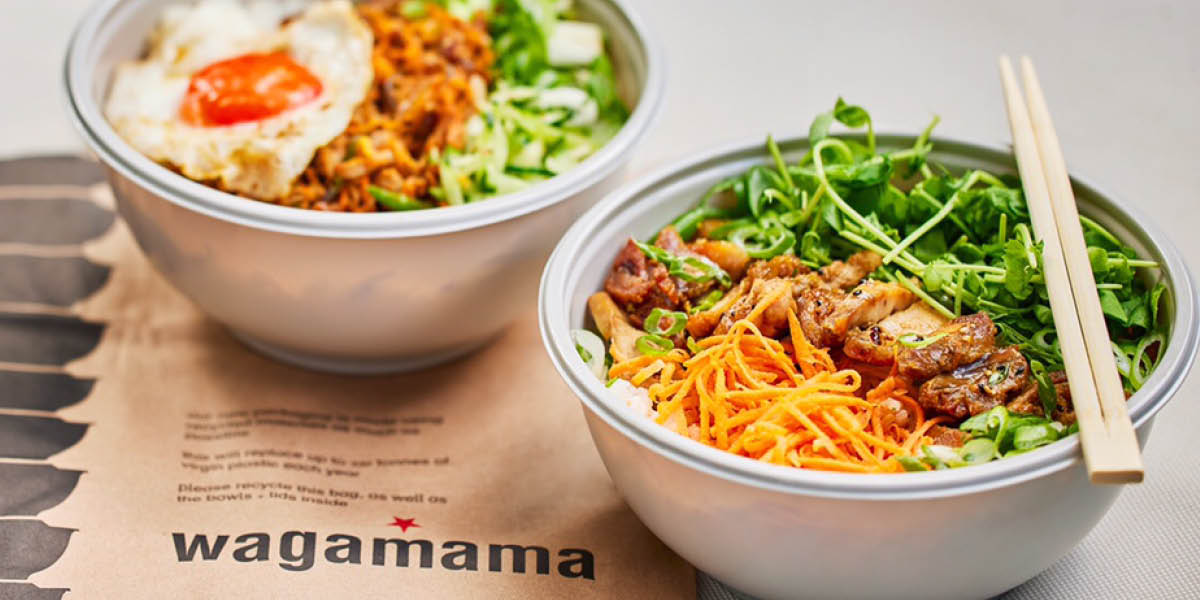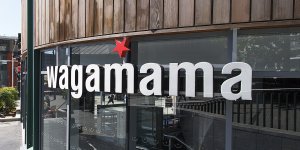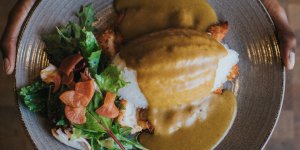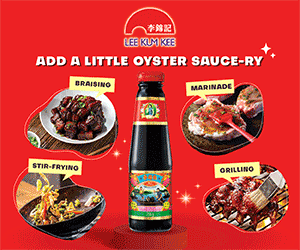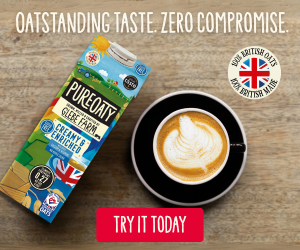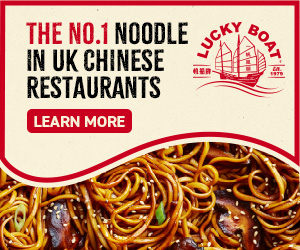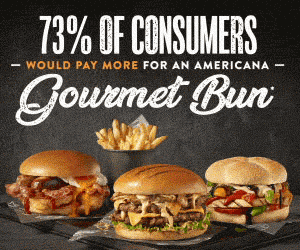Wagamama launches new sustainable packaging

Wagamama has today (15 August) announced its goal to replace more than eight million delivery bowls with new sustainable packaging, made using recycled material.
The shift will remove up to 330 tonnes of virgin plastic from the supply chain every year, and forms part of the group's bid to help tackle the world's increasing plastic pollution crisis.
The solution, made using cPET, will reduce the carbon footprint of the brand's most popular dish – the katsu curry – by 62%.
Wagamama is one of the first brands in hospitality to use cPET in their bowls, as the product is more commonly used for supermarket ready meals. cPET is a food-safe material made from 70% recycled content. Unlike most other PET’s, it has excellent heat resistance, making it the perfect material for delivering hot ramen. The remaining 30% of the packaging products will be plastics which are needed to maintain the structural integrity of the container.
Wagamama has also opted for an easily recyclable PP lid and is committed to working with project partners to get to a fully cPET solution within 18 months. Proving sustainable change is about progress not perfection.
The material make-up of the packaging is the result of four years of planning and advice from leading plastic experts, UK waste collectors, suppliers and cutting-edge product designers.
From today, the packaging will be rolling out across the estate, set to be live across all restaurants and delivery kitchens by October.
Alongside the new packaging solution, Wagamama will be launching its bowl return programme 'Bowl Bank', created in response to the varied practices of UK waste streams.
The brand hopes the inititiative will encourage ownership of waste, inviting guests to return the packaging to their local store. Bowl Bank will be available in every Wagamama venue by October.
Group CEO Thomas Heier comments: "We are in a fortunate position that Wagamama is much-loved by consumers, but we know this comes with a huge responsibility.
"Reducing our use of virgin plastics is a complicated mission – but one we have been dedicated to for four years. This has been driven by the belief that we needed to be better for our guests, teams and the planet.
"Months of trial and error, conversations with leading experts, and research into UK waste streams has resulted in a moment where we can finally say we're proud of our packaging, proving small choices make a big change and sustainable progress doesn't happen overnight," he adds. "This is an exciting and overdue step for us but only the beginning."


